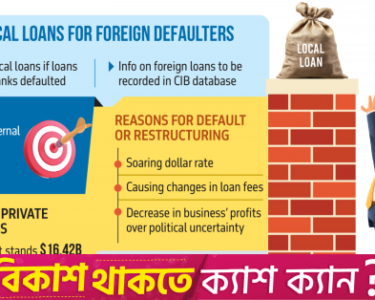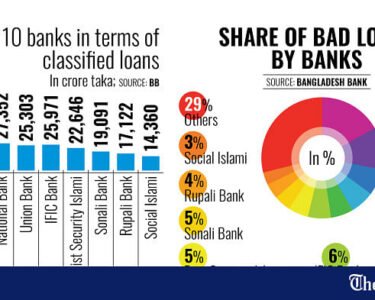Credit cards and debit cards look almost exactly alike but are actually quite different.
Money you spend or withdraw using a debit card comes straight out of your bank account – you’re spending your funds. With a credit card, when you charge a purchase or take a cash advance, you incur debt that you’ll have to repay, often with interest.
Understanding how debit and credit work is the key to taking control of your finances. This guide takes a closer look at debit and credit cards and offers tips for using both to your advantage.
These are some of the key differences between debit and credit cards.
When you use a debit card, it immediately withdraws funds from your bank account. When you use a credit card, you borrow money from your financial institution and have a short grace period in which to pay it back before it begins costing you interest.
Debit and credit cards have very different limits as well. You can only use a debit card up to the amount of cash in your account – or even less if your card has daily transaction restrictions. With credit cards, you can spend up to the full limit of your credit card with any purchase. This is typically thousands of dollars.
As debit cards use the actual cash in your account, you don’t ever have to worry about going into debt by using one.
You must have financial discipline to use a credit card. You can usually charge much more on it, and you only have to pay back a minimum amount every month. Whatever you don’t pay starts racking up interest charges, typically at extremely high rates of 20% or more annually. This makes using a credit card both flexible and a bit dangerous.
No financial tool is perfectly good or perfectly bad. Debit cards have these pros and cons:
As with debit cards, credit cards have their slate of pros and cons.
-
Rewards programs, which can offer everything from air miles and hotel points to cash back and more
-
Allows for building a credit history
-
Have strong fraud protections, with most verifying suspicious purchases directly with customers and offering $0 liability for fraudulent transactions
-
High interest rates and late fees
-
Easy to accumulate debt without proper financial discipline
-
Misuse can damage personal credit rating
Whether debit is a better choice than credit depends on your financial situation and how you manage your money. Each one has unique benefits:
Debit is better for:
-
Eliminating the need to carry cash
-
Instant access to money in your bank account
-
Taking advantage of debit card rewards without accumulating debt
-
Sticking to a budget.
Credit is better for:
-
Earning higher-value rewards
-
Building a credit history that can help you qualify for an auto or home loan
-
Avoiding liability for fraudulent purchases made with your lost or stolen card
-
Protecting purchases with extended warranties and reimbursement for damaged or stolen items
-
Hotel and rental car reservations
-
Making large purchases.
Some bank-issued cards can be used as either a debit card or a credit card. If your debit card has a Mastercard or Visa logo, for example, you can typically use it as either type of card. If you use your PIN code for a transaction, it will be used as a debit card. If you use it as a credit card, you’ll have to sign for it, just as with traditional credit cards.
According to Experian, there are separate “hybrid debit-credit” cards that generally don’t need a credit check to qualify for and limit your credit line to the amount of cash you have available. Popular hybrid cards include the SuperCash Card, the Tomo Credit Card, the Extra Card and the Zoro Card.
If you do choose to make both debit and credit transactions on the same card, you should understand that there’s usually a difference in the fees you are charged and how the transaction is processed.
Debit card fees, for example, are generally fairly low. The risk of the transaction going bad is low since it’s processing money that is already verified to be in an account. According to Merchant Cost Consulting, the average debit card transaction fee is about 23 cents. This is a fee that the merchant has to pay but will often pass on to the consumer.
Credit card transactions can carry a fee of 3% or more. That’s because credit cards are open, unsecured lines of credit. There’s no verified money sitting in an account to cover the cost of the transaction. Therefore, it’s more risky for the financial processing companies. Merchants commonly pass on these hefty credit card fees to consumers.
So, if you’re looking to minimize your transaction costs, it’s almost always more economical to choose debit over credit.
If you want to build your credit score, your debit card won’t do much good. That’s because your debit card doesn’t report to the three major credit reporting agencies. When you’re using a debit card, you’re simply spending money out of your bank account. This doesn’t give lenders any information about whether or not you can responsibly manage your credit.
When used responsibly, a credit card can help build your credit over time. Timely payments, managing your debt , and how often you apply for new credit all play role in your overall credit score.
Credit cards have a clear advantage in security. All four major credit card networks–Visa, Mastercard, Discover and American Express–offer full liability protection for unauthorized charges. You’re not responsible for any portion of the unauthorized amount.
Although debit card issuers might offer the same protection, they’re not required to. You won’t be on the hook for unauthorized purchases if you report your card lost or stolen before someone else uses it.
Waiting just two days to report the loss can cost you up to $50, and waiting three or more makes you responsible for up to $500. After 60 days, your options for recovering any lost money may be limited.
You can try setting up notifications so that your card issuer lets you know if any transactions are outside your pre-set parameters. For example, you can receive a notification if any transactions above $100, $500 or $1,000 are made on your cards or if any international transactions are attempted. To protect your overall credit health, you can request a hold so that no one can fill out an application in your name.
Your debit card is a good alternative to cash for everyday purchases you want to pay for directly from your checking account. This way, you get the convenience of using plastic, but because the money is immediately debited, you’ll be less tempted to overspend. You’ll also avoid accumulating debt entirely.
Use your credit card to earn rewards, save money or help build credit–but only when the benefits of using the card outweigh the risk of debt. Charging everyday purchases and bills can be worthwhile if you can earn rewards on your spending.
Credit cards also offer purchase protection, price guarantees and fraud protection, making them valuable again for any big-ticket purchases.
The benefits of credit cards disappear if you spend more on interest than you earn in rewards. So, consider reserving your card for purchases you can pay off by the due date so you do avoid paying interest.
Most Americans use both debit and credit cards, but they are used differently.
If you only want to spend the money you have and never want to go into debt, a debit card should be your primary spending source. If you want to make larger purchases, earn greater rewards and build your credit, a credit card might be a better choice. Ultimately, understanding your financial habits and goals is the first step in making the right choice.
Good To Know
Daria Uhlig contributed to the reporting for this article.
This article originally appeared on GOBankingRates.com: Debit Card vs. Credit Card: What’s the Difference?




